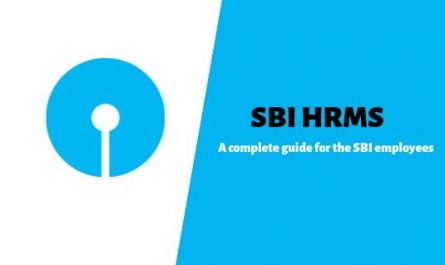Lenders consider several criteria while evaluating your personal loan applications. Personal loan applicants failing to meet any of the criteria may face loan rejection. Therefore, understanding the factors that lead to personal loan rejection can help to improve your chances of availing personal loans. Here are the five of the main reasons for personal loan rejection.
Low Credit Scores
Lenders offering personal loans usually consider their loan applicants’ credit scores to evaluate their creditworthiness. Banks and non-banking financial companies (NBFCs) prefer approving the personal loan applications of those having credit scores of 750 and above. Individuals having lower credit scores are considered as less financially disciplined and thus, carry higher risk of defaulting on their personal loans. Therefore, lenders are more likely to reject loan applications of those having lower credit scores. While some lenders approve personal loan applications of individuals having low credit scores, they usually charge higher interest rates from such personal loan applicants.
As your need to avail personal loans can arise anytime, you should aim to maintain credit scores of 750 and above to improve your personal loan eligibility. Prospective applicants can increase their credit scores by following healthy credit practices like repaying their credit card bills and EMIs by the due date, avoiding multiple loan or credit card applications within short durations, etc. Those who have never availed credit cards or loans can avail credit cards to build their credit scores.
As credit card transactions are considered as equivalent of availing loans, credit card transactions are also reported to the credit bureaus and used for calculating credit scores. Thus, using credit cards for making payments and then repaying the credit card bills by their due dates would help in improving your credit scores. Prospective applicants who cannot avail regular credit cards can apply for secured credit cards to help build their credit scores.
Lower EMI Affordability
Lenders also consider their personal loan applicants’ repayment capacity while evaluating their eligibility for availing personal loans. Banks/NBFCs usually prefer approving personal loan applications of those having their monthly repayment obligations, including the EMI of their proposed personal loan, within 50-55% of their net monthly income. Loan applicants exceeding the above-mentioned limit can improve their personal loan eligibility by choosing longer repayment tenures and/or lower personal loan amounts. Doing so will reduce the EMI of their proposed personal loan and thereby, reduce their monthly debt obligations within the 50-55% limit. Prospective applicants can use the personal loan EMI calculators provided by many lenders on their websites. They can also use the EMI calculators for personal loans from Paisabazaar or other online financial marketplaces. Doing so will help them know the optimum EMI and loan tenure for their proposed personal loans.
Unstable Employment History
Lenders consider the employment stability of prospective borrowers while evaluating their personal loan applications. Those who change their jobs frequently are considered to carry higher credit risk for lenders and thus, are less likely to avail personal loan approval.
Furthermore, some banks/NBFCs offering personal loans also require their salaried loan applicants to have minimum work experience of 6 months to 1 year in their present organisation. Therefore, prospective personal loan borrowers should avoid making frequent job changes as it will help improve their chances of personal loan approval.
Approaching Multiple Banks/NBFCs within Short Duration
Whenever you apply for a personal loan with a lender, it will fetch your credit report from the credit bureaus to assess your creditworthiness. Such lender initiated requests for credit reports are known as hard inquiries. Credit bureaus reduce your credit score by a few points for each hard inquiry. Hence, those making multiple hard inquiries with lenders within short duration may see a sharp reduction in their credit score. This in turn will reduce their chances of availing personal loans. To prevent this, prospective applicants should visit online financial marketplaces and compare personal loan offers of multiple lenders before making the loan application. Credit bureaus consider credit reports requests of these marketplaces as soft inquiries, which does not impact your credit scores.
Ineligible Occupation Profile
Lenders offering personal loans also consider your occupation profile while evaluating your loan applications. Lenders may reject your personal loan applications if your occupation or employer profile is not within the list of preferred occupation or employer profiles. Personal loan lenders may also reject your loan application in case you are working for an organisation not within their list of approved employers. Lenders may also not approve personal loan applications of self-employed individuals belonging to their negative list of professions/businesses.
Inside Contents

